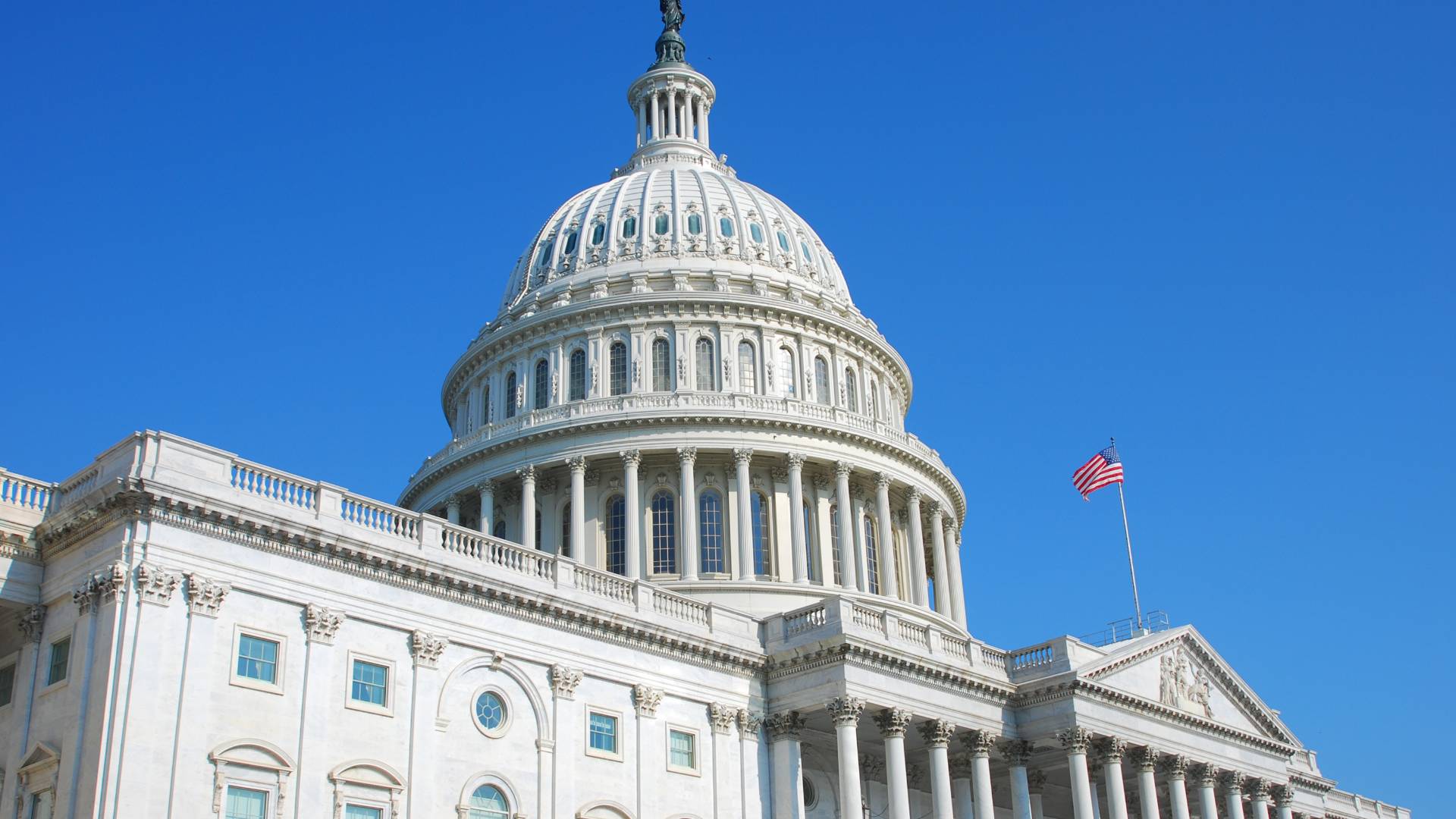Congress Takes Steps Toward Reducing Animal Experimentation in 2023 Omnibus Spending Package

Congress passed a massive annual spending bill just before the New Year, which contains numerous provisions supporting the adoption of human-specific, nonanimal methods and reduced use of animals in federally funded experiments.
This “omnibus,” officially titled the “Consolidated Appropriations Act, 2023,” provides funding for federal agencies through September 30, 2023, and includes provisions indicating congressional support for a shift away from certain federally funded animal experiments.
The Physicians Committee is pleased to see this progress, which was achieved, in part, due to our years of advocacy on both the need for more effective and ethical research and testing methods, and increased transparency and oversight of animal experiments. Although there is much more to do to permanently keep animals out of laboratories, it is encouraging to see these favorable provisions included in such wide-reaching legislation. The Physicians Committee looks forward to continuing to advocate for a future without animal experiments.
The provisions listed below highlight directives in the omnibus or its accompanying report that address government activities related to animal experimentation for several Agencies:
Food and Drug Administration (FDA):
- A priority of PCRM, the omnibus provides $5 million for cross-cutting initiatives to reduce animal testing through alternative methods. FDA requested to use this funding to launch an agency-wide program to further the development, qualification, and implementation of nonanimal approaches.
- Provides $3 million for the Predictive Toxicology Roadmap within increases for medical product safety. The Roadmap outlines a framework for Agency priorities to improve predictivity and reduce and replace animals in toxicology tests.
- Supports FDA’s work to qualify nonanimal approaches with the Innovative Science and Technology Approaches for New Drugs (ISTAND) program, a longstanding priority of PCRM. ISTAND launched at FDA in 2020 to provide a pathway for acceptance of new drug development tools, including nonanimal approaches for assessing the safety of pharmaceuticals.
- Machine Learning: Encourages the Center for Drug Evaluation and Research to use artificial intelligence and machine learning to enhance review for repurposed drugs.
- Non-Human Primates: Encourages FDA to reduce primate testing and prioritize alternative research methods to relocate primates to sanctuaries, and requests FDA to report back on progress.
- Predictive Toxicology Roadmap: Directs FDA to report back on its progress related to reliability, reproducibility, and development of new alternative methods, and FDA’s evaluation of these methods.
- Prevents the use of funds for any non-recording of Animal Welfare Act (AWA) violations, or lack of enforcement of penalties for AWA violations.
- Conveys the sense of Congress that animal testing should not be done for safety testing on cosmetic products and should be phased out.
National Institutes of Health (NIH):
- Cures Acceleration Network (CAN): Provides funding for the CAN to allow the National Center for Advancing Translational Sciences to expand concepts including artificial intelligence for drug development and tissue chip technology.
- Chimera Research: Supports NIH’s funding limitation regarding the creation of human-animal chimeras.
- Chimpanzee Maintenance, Care, and Transportation: Directs NIH to report to Congress quarterly with information about chimpanzees that remain in research facilities and those in the national sanctuary system.
- Collection and Reporting on Animal Research Numbers and Agency Funding: A longstanding priority of PCRM, the omnibus encourages NIH to provide a draft form for collecting data on animal use in NIH-funded research annually and include details on how it will address incomplete reporting. Encourages this information to be included in NIH’s forthcoming report to Congress on this topic, which was directed last year.
- Humane Research Alternatives: Directs NIH to report to Congress on establishing incentives for encouraging researchers to use nonanimal methods when appropriate, and establishing standardized guidelines for peer review evaluation of animal research justifications.
- Adoption of Dogs, Cats, and Rabbits Used in Research: Encourages NIH to recommend that grantees implement post-research adoption policies for dogs, cats, and rabbits, maintain records on adoption numbers, and make that information publicly available.
- Interagency Coordinating Committee on the Validation of Alternative Methods (ICCVAM): Urges ICCVAM to provide an update on progress regarding member agency metrics on reducing, refining, or replacing animal use in testing.
Environmental Protection Agency (EPA):
- New Approach Methods: Directs EPA to follow last year’s guidance to brief Congress on efforts to advance nonanimal testing and EPA’s experience with submitters prioritizing nonanimal methods before conducting animal testing, in compliance with the Lautenberg Act. Encourages the Agency to continue supporting the development and evaluation of nonanimal methods in the chemical safety program.
- Testing Alternatives: Directs EPA to brief Congress on the timeline for reducing and replacing vertebrate animal experiments. Directs EPA to publish information on nonanimal method submissions, and incorporate goals and steps for reducing animal testing and assessing progress in a forthcoming report.
- Pesticide Licensing: Provides increased funding for pesticides licensing, and directs EPA to provide Congress an uncompleted briefing. This funding will help support existing work on nonanimal methods at the Agency.








